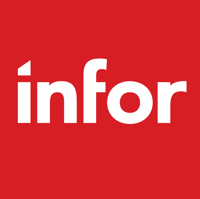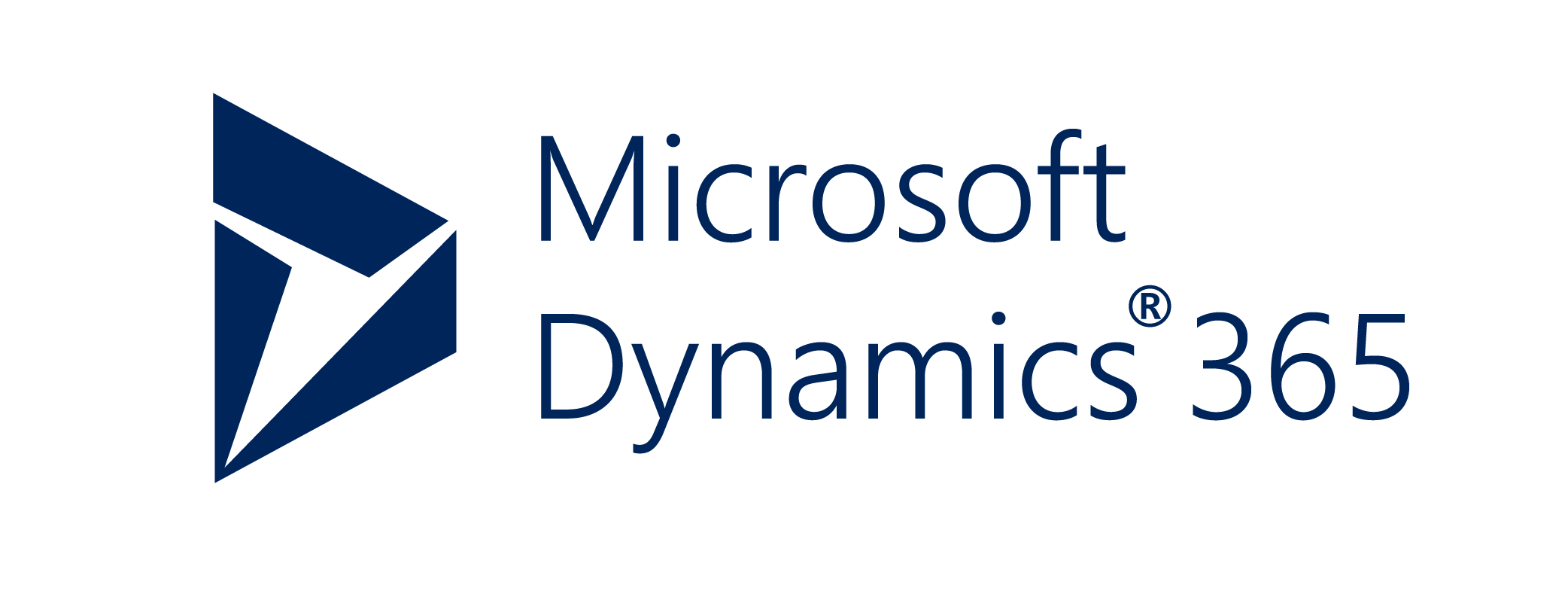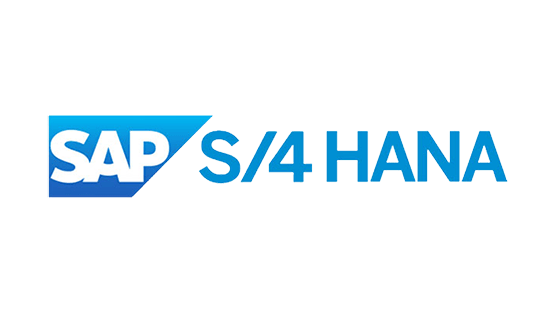ERP Software for Wholesale & Distribution
ERP software enables wholesale & distributors to optimise processes, drive operational efficiencies and harness data to make better decisions across sales, warehousing, inventory and more.
At ERP Research we provide independent advice and analysis for distribution & wholesale ERP systems.
Top 10 ERP Systems For Wholesale & Distribution
Learn everything you need to know about the best ERP solutions for wholesalers in our detailed solution comparison report. We compare ERP for wholesalers including SAP, Infor, Microsoft, Netsuite, Oracle and more.
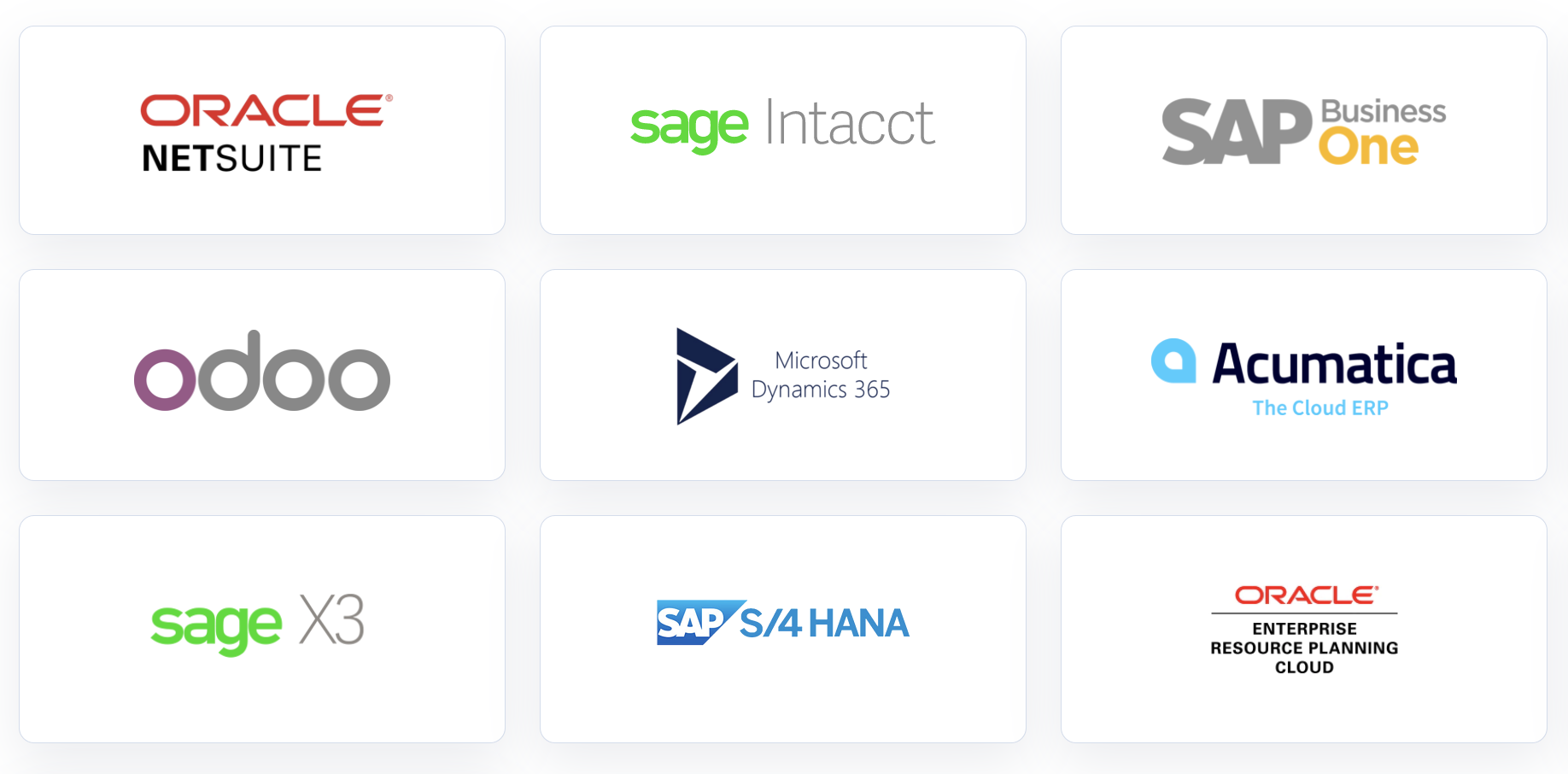
Best ERP for Small & Midsized Wholesale & Distribution
Top ERP software for small distribution companies needs to cater for flexibility and growth, whilst keeping costs as low as possible. Which are some of the most popular ERP systems for small and medium sized ecommerce businesses?
Infor CloudSuite Industrial (Syteline)
Infor CSI is well suited to small and medium sized distribution businesses looking for a new ERP solution with its tight integration between inventory, finance, warehouse management, sales, human resources and other essential features for distribution.
Oracle Netsuite
Oracle Netsuite is a Cloud ERP solution that serves as the ERP solution for small and medium sized distributors. Netsuite offers a diverse set of capabilities for distribution management including sales, ecommerce, finance and inventory management.
SAP Business One
SAP Business One is a proven enterprise resource planning solution used by hundreds of distribution companies around the world. The ERP solution offers distributors powerful features for inventory management, warehouse management, finance and more.
Microsoft Dynamics 365 Business Central
Microsoft Dynamics 365 Business Central is an ERP solution which caters well to small businesses in the distribution and wholesales industry and includes industry templates for WMS and more.
Odoo
Odoo is a powerful open source ERP software for distribution and wholesale companies, as well as catering for many other industries. Odoo is a great solution for wholesale and distribution companies looking for a cheap, flexible ERP solution.
SAP Business ByDesign
SAP Business ByDesign is a powerful ERP solution for companies looking for a true Cloud or SaaS ERP solution for wholesale and distribution. ByDesign for wholesale is used by small and medium sized distribution companies around the world.
Acumatica
Acumatica is a Cloud-based ERP that works well for small and medium-sized distribution companies. It is flexible and scalable, making it useful to growing wholesale companies.
Priority ERP
Priority is a scalable ERP solution which is available both in the Cloud or On-Premise and can be a great ERP solution for distribution companies. both small, medium sized and growing.
SYSPRO
SYSPRO is a popular ERP solution with small and medium sized distribution companies. SYSPRO provides a high degree of flexibility for wholesale & distribution companies.
Best ERP for Growing & Large Wholesale & Distributors
Which are some of the best ERP systems for rapid growth and large distribution businesses and wholesalers? Below are some of the most popular ERP choices for big distribution:
SAP S/4 HANA
SAP S/4 HANA is used by some of the largest distributors and wholesalers in the world, it provides best of breed capabilities for supply chain planning, inventory management, warehouse management, sales plus inbuilt functionality to manage global trade.
Microsoft Dynamics 365
Microsoft Dynamics 365 ERP brings together multiple key features for distribution businesses including warehouse management, sales and service, operations plus finance and field service in one customizable toolkit for distribution.
Oracle ERP Cloud
Oracle ERP Cloud is a popular choice for distribution businesses and companies in the wholesale industry that are looking for a scalable, enterprise ERP system that can cater for high complexity in multiple markets.
Cloud ERP for Distribution
Which are some of the best Cloud ERP systems for distribution businesses and wholesalers? Below are some of the most popular Cloud & SaaS ERP choices for distribution:
Oracle Netsuite
Oracle Netsuite is a Cloud ERP solution that serves as the ERP solution for small and medium sized distributors. Netsuite offers a diverse set of capabilities for distribution management including sales, ecommerce, finance and inventory management.
Oracle ERP Cloud
Oracle ERP Cloud is a popular choice for distribution businesses and companies in the wholesale industry that are looking for a scalable, enterprise ERP system that can cater for high complexity in multiple markets.
Microsoft Dynamics 365
Microsoft Dynamics 365 ERP brings together multiple key features for distribution businesses including warehouse management, sales and service, operations plus finance and field service in one customizable toolkit for distribution.
SAP S/4 HANA
SAP S/4 HANA is used by some of the largest distributors and wholesalers in the world, it provides best of breed capabilities for supply chain planning, inventory management, warehouse management, sales plus inbuilt functionality to manage global trade.
SAP Business One
SAP Business One is a proven enterprise resource planning solution used by hundreds of distribution companies around the world. The ERP solution offers distributors powerful features for inventory management, warehouse management, finance and more.
Odoo
Odoo is a powerful open source ERP software for distribution and wholesale companies, as well as catering for many other industries. Odoo is a great solution for wholesale and distribution companies looking for a cheap, flexible ERP solution.
Speak to an Independent ERP Expert
ERP Research helps you to:
✅ Shortlist ERP software & implementation partners.
✅ Arrange custom ERP demonstrations and quotes.
✅ Access our huge library of ERP reports, templates and project documentation.
Users Per Month:
18,000+
ERP Projects:
4000+
Industries Covered:
22+
Rootstock
Rootstock Software is a cloud-based ERP solution built on the Salesforce platform, which is designed to serve businesses across various industries, including manufacturing, distribution, and supply chain operations. Let's look at how Rootstock can be used as an ERP for distributors:
1. Inventory Management: Rootstock offers robust inventory management capabilities that can handle multiple warehouses, lots, and locations. It helps distributors to maintain optimal inventory levels, track goods, manage replenishment, and reduce carrying costs.
2. Order Management: Rootstock ERP streamlines order processing by managing sales orders, work orders, purchase orders, and intercompany orders in one place. It automates the order-to-cash process, reducing order fulfillment times and enhancing customer service.
3. Supply Chain Management: Rootstock helps distributors to gain visibility into their supply chain. It aids in demand forecasting, supplier management, procurement, and logistics. This ensures timely deliveries, reduces supply chain risks, and optimizes the overall supply chain operations.
4. Customer Relationship Management (CRM): Being built on the Salesforce platform, Rootstock ERP natively integrates with Salesforce CRM. This allows distributors to have a 360-degree view of their customers, manage customer interactions effectively, and provide improved customer service.
5. Financial Management: Rootstock offers a full suite of financial applications, including general ledger, accounts receivable, accounts payable, cost accounting, and financial reporting. This helps distributors to streamline their financial operations, ensure regulatory compliance, and gain financial insights for decision making.
6. Analytics and Reporting: Rootstock, combined with Salesforce's powerful analytics engine, provides real-time reporting and dashboards. This allows distributors to monitor key performance indicators (KPIs), track operational metrics, and make data-driven decisions.

Infor CloudSuite Industrial
Infor CloudSuite Industrial (formerly known as SyteLine) is an enterprise resource planning (ERP) software designed to help manufacturing and distribution businesses streamline their operations, improve efficiency, and increase profitability. When used as an ERP for distribution, CloudSuite Industrial offers a range of features and functionalities that can benefit businesses in this industry. Here are some ways in which CloudSuite Industrial can be used as an ERP for distribution:
-
Inventory Management: CloudSuite Industrial allows businesses to track inventory levels in real-time, set up automated replenishment, and manage their inventory across multiple locations. This helps businesses to optimize their inventory levels, reduce stock-outs, and improve their order fulfillment rates.
-
Order Management: With CloudSuite Industrial, businesses can manage their orders from start to finish, including order entry, processing, picking, packing, and shipping. The software also enables businesses to track order status, manage backorders, and handle returns and exchanges.
-
Warehouse Management: CloudSuite Industrial provides businesses with tools to manage their warehouse operations, including picking, putaway, and inventory transfers. The software also enables businesses to optimize warehouse layouts, manage bin locations, and track inventory movements.
-
Customer Management: CloudSuite Industrial allows businesses to manage their customer accounts, including contact information, order history, and pricing. The software also provides businesses with tools to manage pricing and discounts for different customers and customer groups.
-
Financial Management: CloudSuite Industrial includes financial management features such as accounts payable, accounts receivable, general ledger, and financial reporting. These features enable businesses to track their finances, manage cash flow, and generate financial statements.
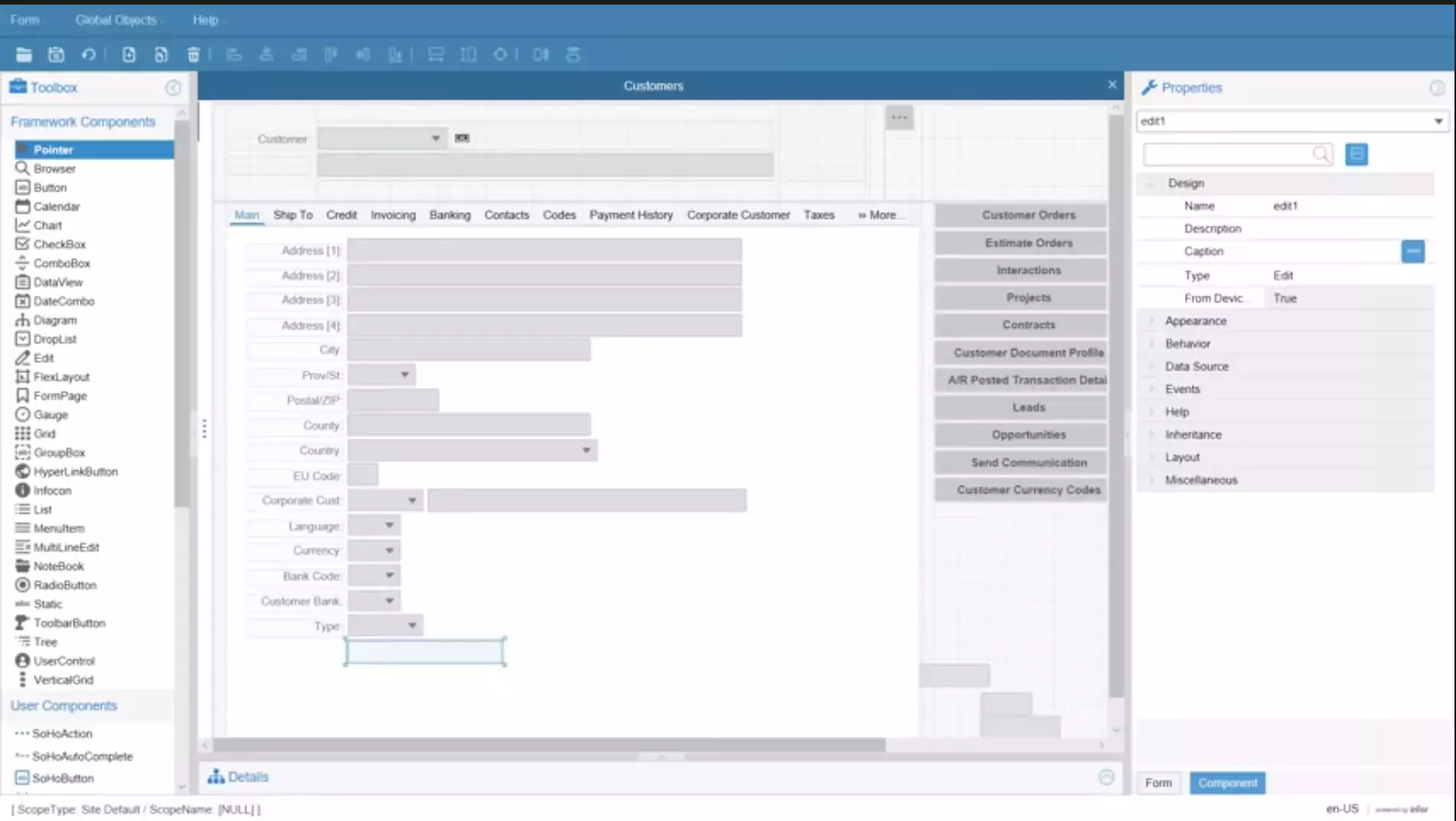
SAP Business One
SAP One is a cloud-based ERP solution designed for small and medium-sized enterprises (SMEs) that offers a range of features to manage business processes, including financial management, supply chain management, and customer relationship management. Here are some ways in which SAP One can be used as an ERP for distributors:
-
Inventory Management: SAP One provides inventory management features that allow distributors to track stock levels and ensure timely replenishment of inventory. Distributors can set up reorder points, track stock movements, and manage multiple warehouses using the software.
-
Sales Order Management: SAP One enables distributors to manage their sales orders efficiently. They can create quotes and sales orders, track their progress, and manage returns and refunds. The software provides real-time information on the status of orders, helping distributors to provide accurate delivery dates and manage customer expectations.
-
Purchasing Management: SAP One allows distributors to manage their purchasing processes effectively. They can create purchase orders, track purchase requisitions, and manage supplier relationships using the software. The solution also provides real-time information on purchase order status, helping distributors to manage inventory levels and ensure timely deliveries.
-
Financial Management: SAP One provides comprehensive financial management features that enable distributors to manage their financial processes effectively. They can track expenses, generate financial reports, and manage budgets using the software. The solution also enables distributors to manage their cash flow and monitor financial performance.
-
Customer Relationship Management: SAP One allows distributors to manage their customer relationships effectively. They can track customer interactions, manage customer data, and analyze customer behavior using the software. The solution also provides features such as email marketing and customer segmentation, enabling distributors to target customers with personalized marketing campaigns.
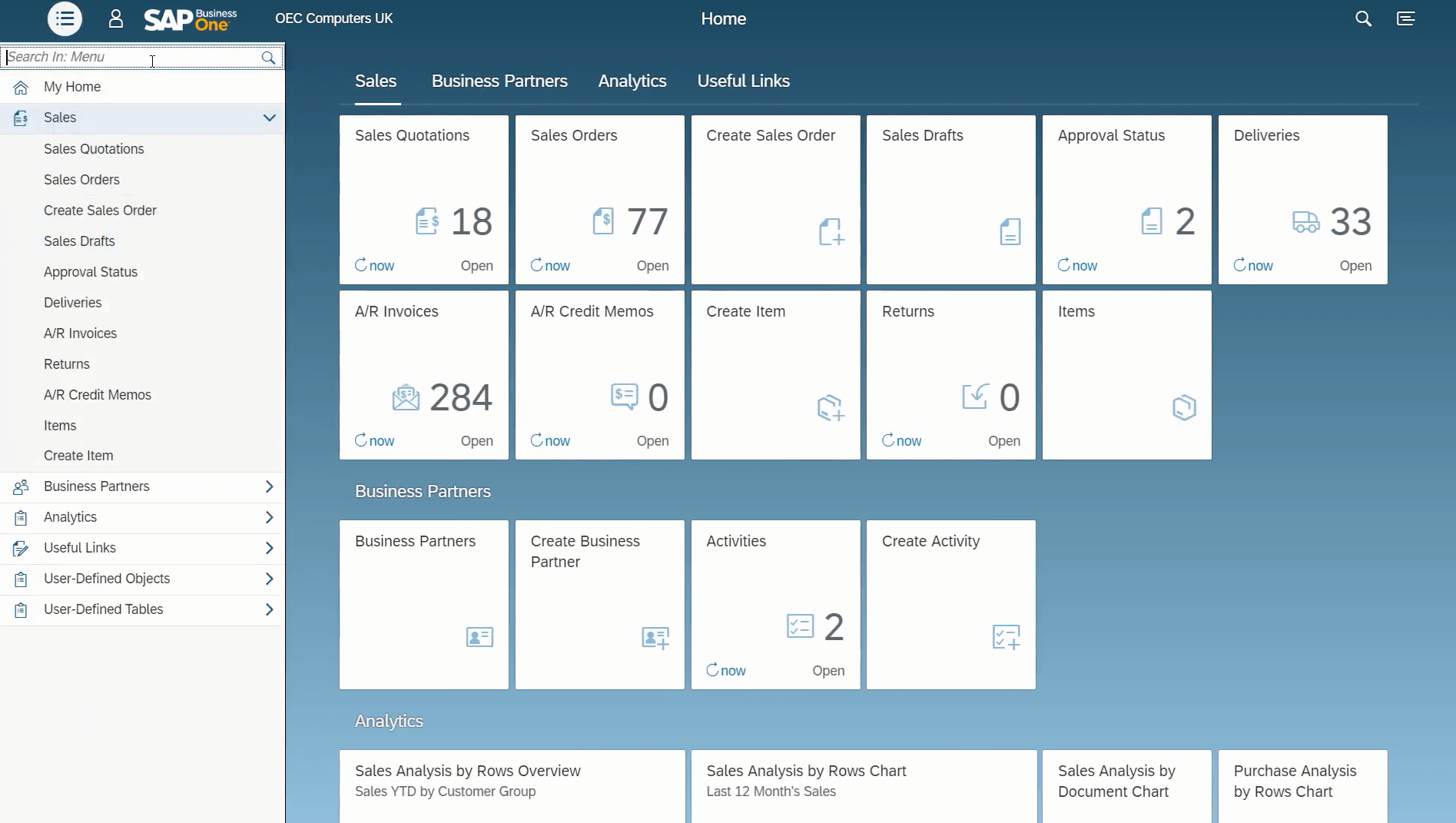
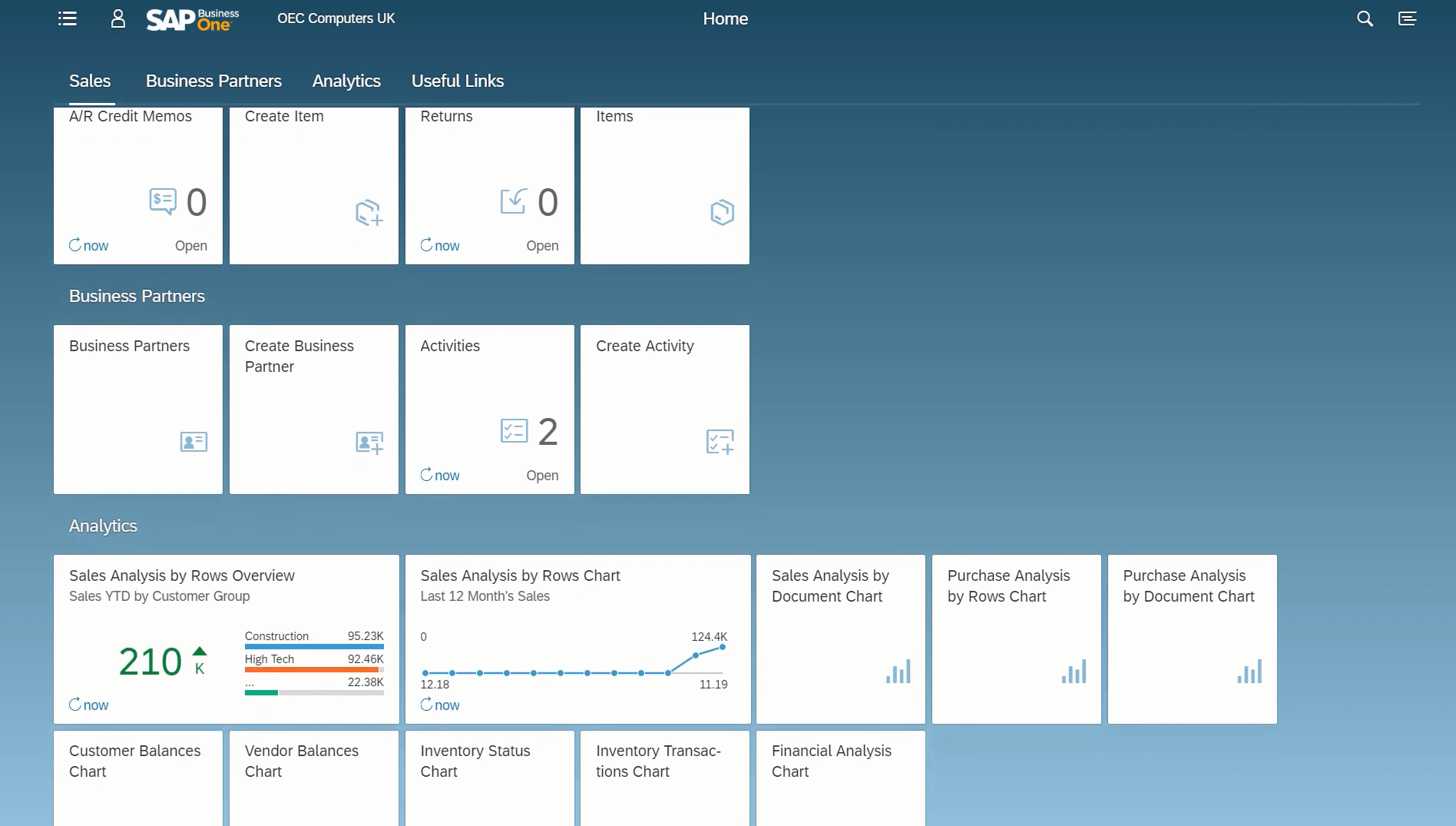
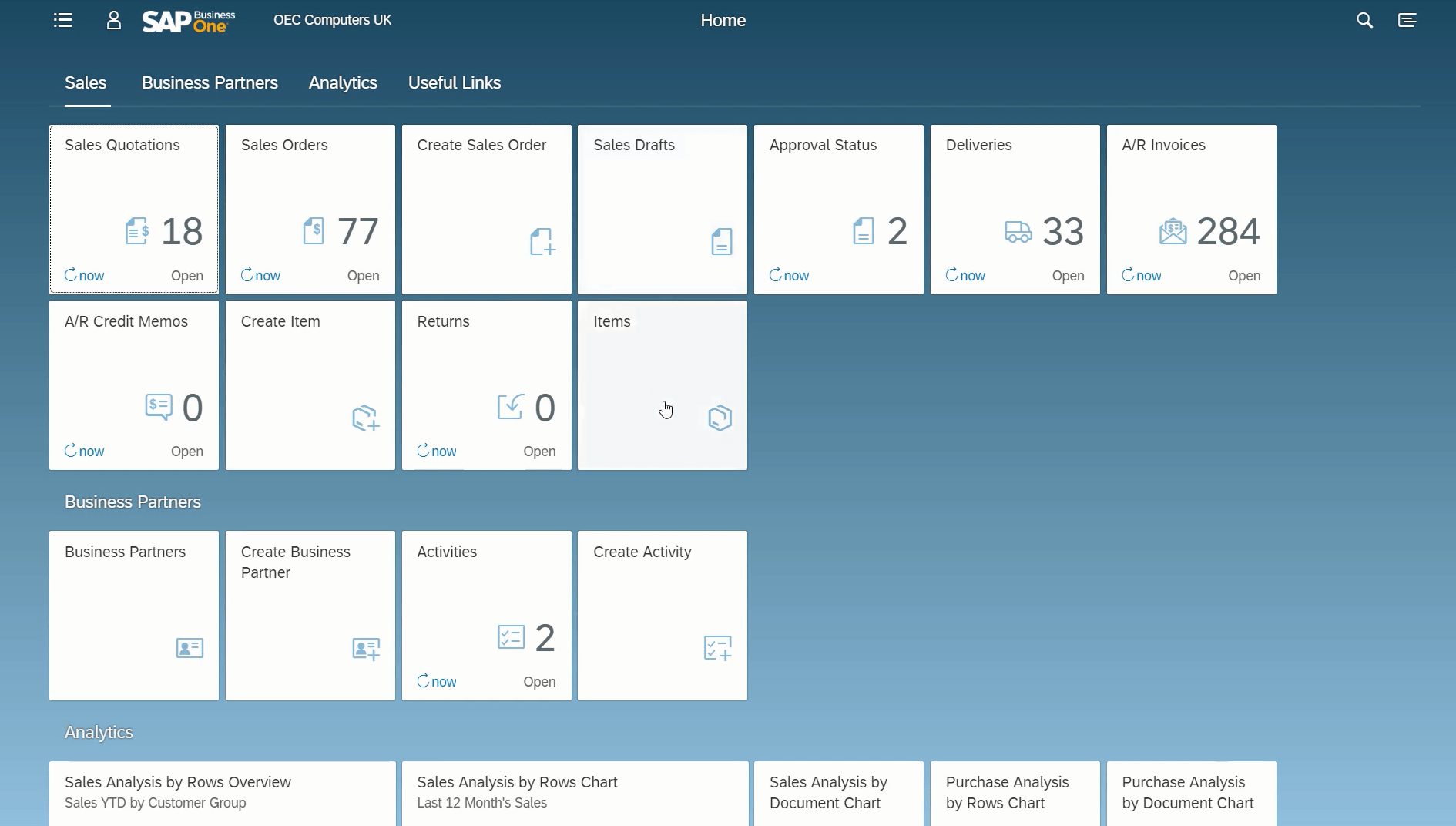
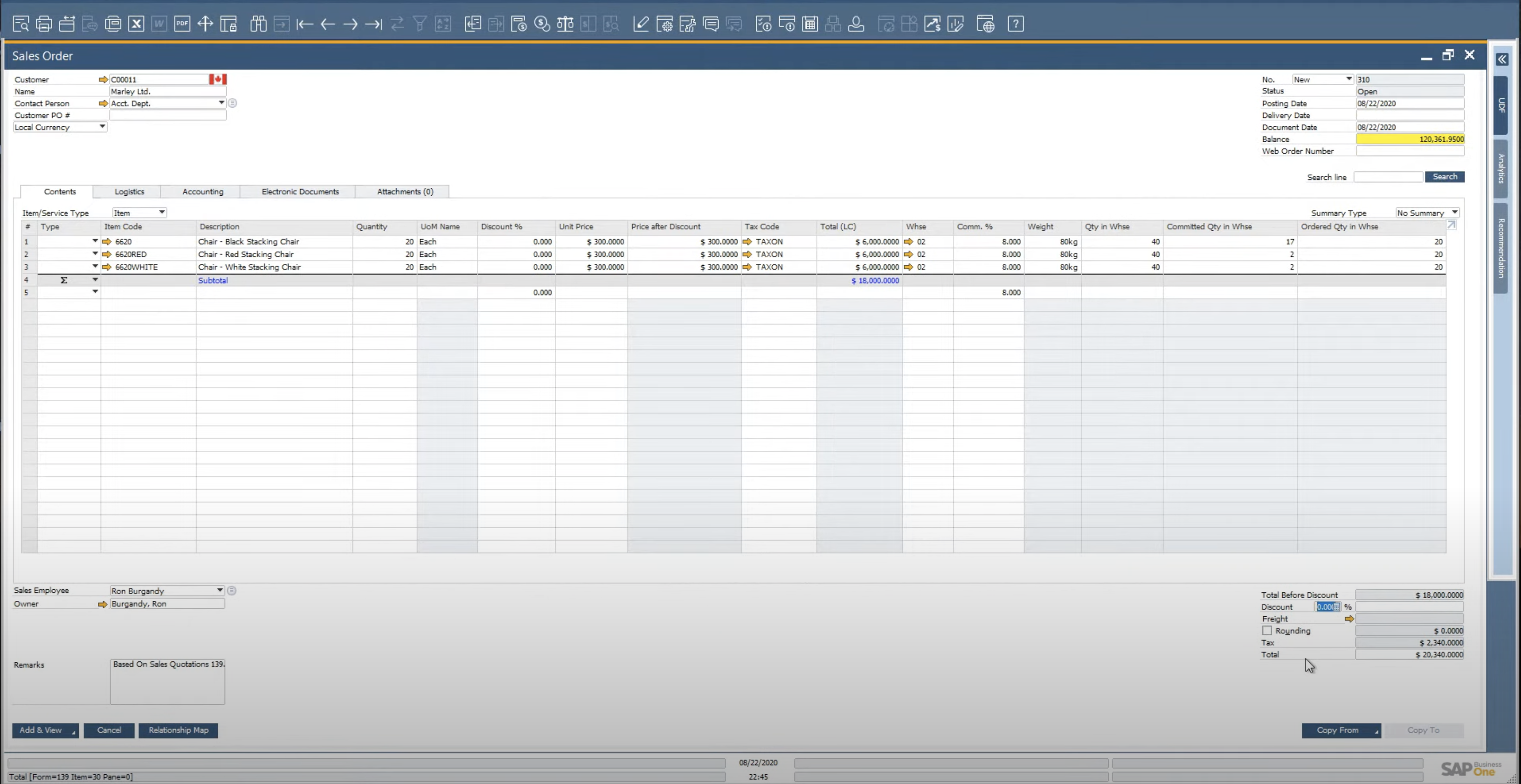
Acumatica
Acumatica is a cloud-based enterprise resource planning (ERP) software that can be used by wholesalers to manage their business operations. Here are some ways in which wholesalers can use Acumatica:
-
Inventory Management: Acumatica provides robust inventory management capabilities that allow wholesalers to track inventory levels, set reorder points, and manage stock across multiple warehouses. This helps wholesalers to maintain optimal inventory levels and avoid stockouts or overstocking.
-
Sales Management: Acumatica allows wholesalers to manage their sales process from lead to order fulfillment. Wholesalers can track customer interactions, create quotes and orders, and manage their sales pipeline. Acumatica also enables wholesalers to manage their customer pricing and discounts.
-
Purchasing Management: With Acumatica, wholesalers can manage their purchasing process from creating purchase orders to receiving goods and making payments. Wholesalers can also manage their vendor relationships and track vendor performance.
-
Financial Management: Acumatica provides robust financial management capabilities that allow wholesalers to manage their finances, including accounts payable and receivable, cash management, and general ledger. Wholesalers can also generate financial statements and reports to gain insights into their business performance.
-
Reporting and Analytics: Acumatica provides robust reporting and analytics capabilities that allow wholesalers to generate customized reports and dashboards to gain insights into their business performance. Wholesalers can also track key performance indicators (KPIs) and set alerts to stay informed of critical business metrics.
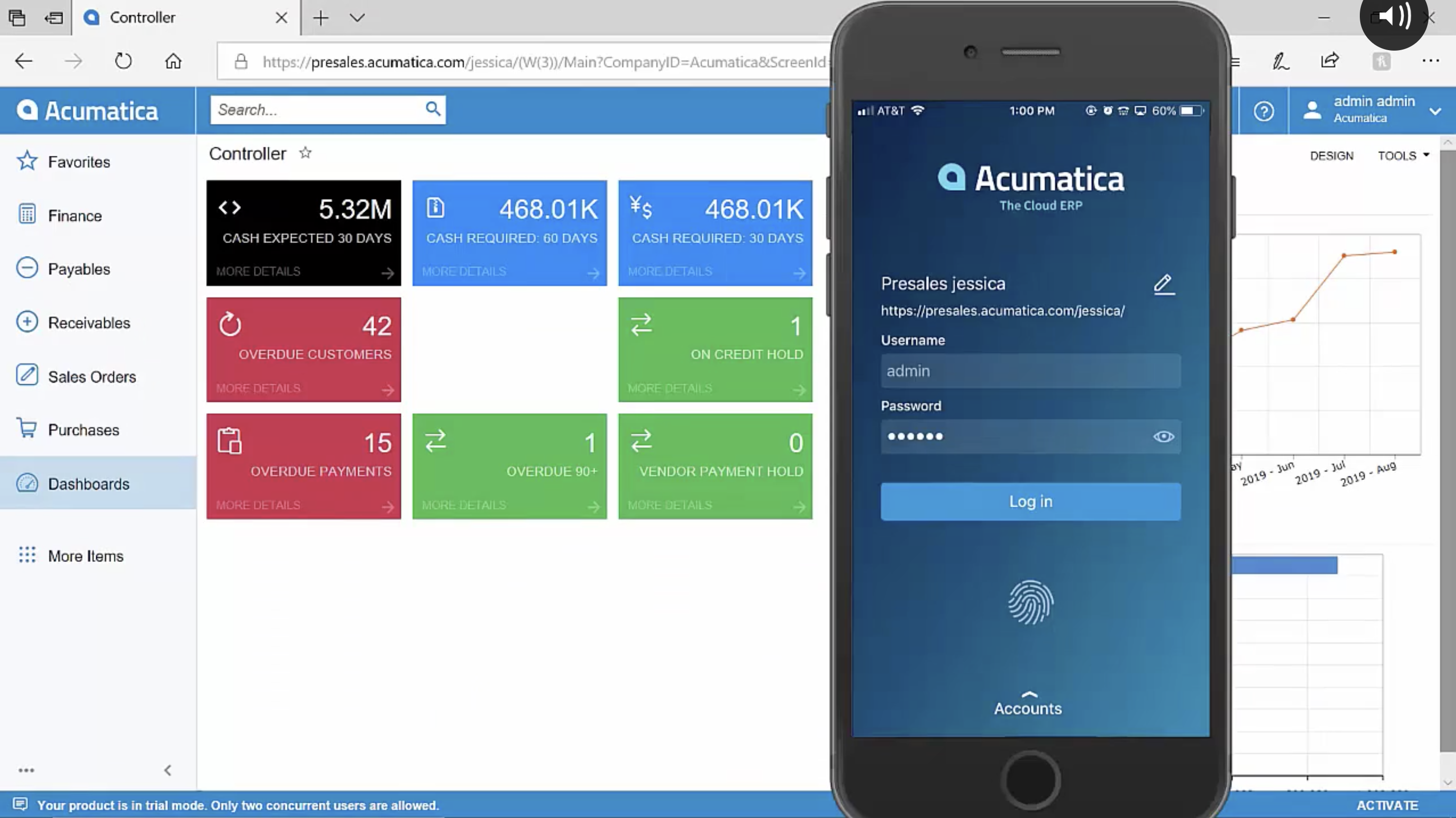
SAP Business One
SAP One is a cloud-based ERP solution designed for small and medium-sized enterprises (SMEs) that offers a range of features to manage business processes, including financial management, supply chain management, and customer relationship management. Here are some ways in which SAP One can be used as an ERP for distributors:
-
Inventory Management: SAP One provides inventory management features that allow distributors to track stock levels and ensure timely replenishment of inventory. Distributors can set up reorder points, track stock movements, and manage multiple warehouses using the software.
-
Sales Order Management: SAP One enables distributors to manage their sales orders efficiently. They can create quotes and sales orders, track their progress, and manage returns and refunds. The software provides real-time information on the status of orders, helping distributors to provide accurate delivery dates and manage customer expectations.
-
Purchasing Management: SAP One allows distributors to manage their purchasing processes effectively. They can create purchase orders, track purchase requisitions, and manage supplier relationships using the software. The solution also provides real-time information on purchase order status, helping distributors to manage inventory levels and ensure timely deliveries.
-
Financial Management: SAP One provides comprehensive financial management features that enable distributors to manage their financial processes effectively. They can track expenses, generate financial reports, and manage budgets using the software. The solution also enables distributors to manage their cash flow and monitor financial performance.
-
Customer Relationship Management: SAP One allows distributors to manage their customer relationships effectively. They can track customer interactions, manage customer data, and analyze customer behavior using the software. The solution also provides features such as email marketing and customer segmentation, enabling distributors to target customers with personalized marketing campaigns.
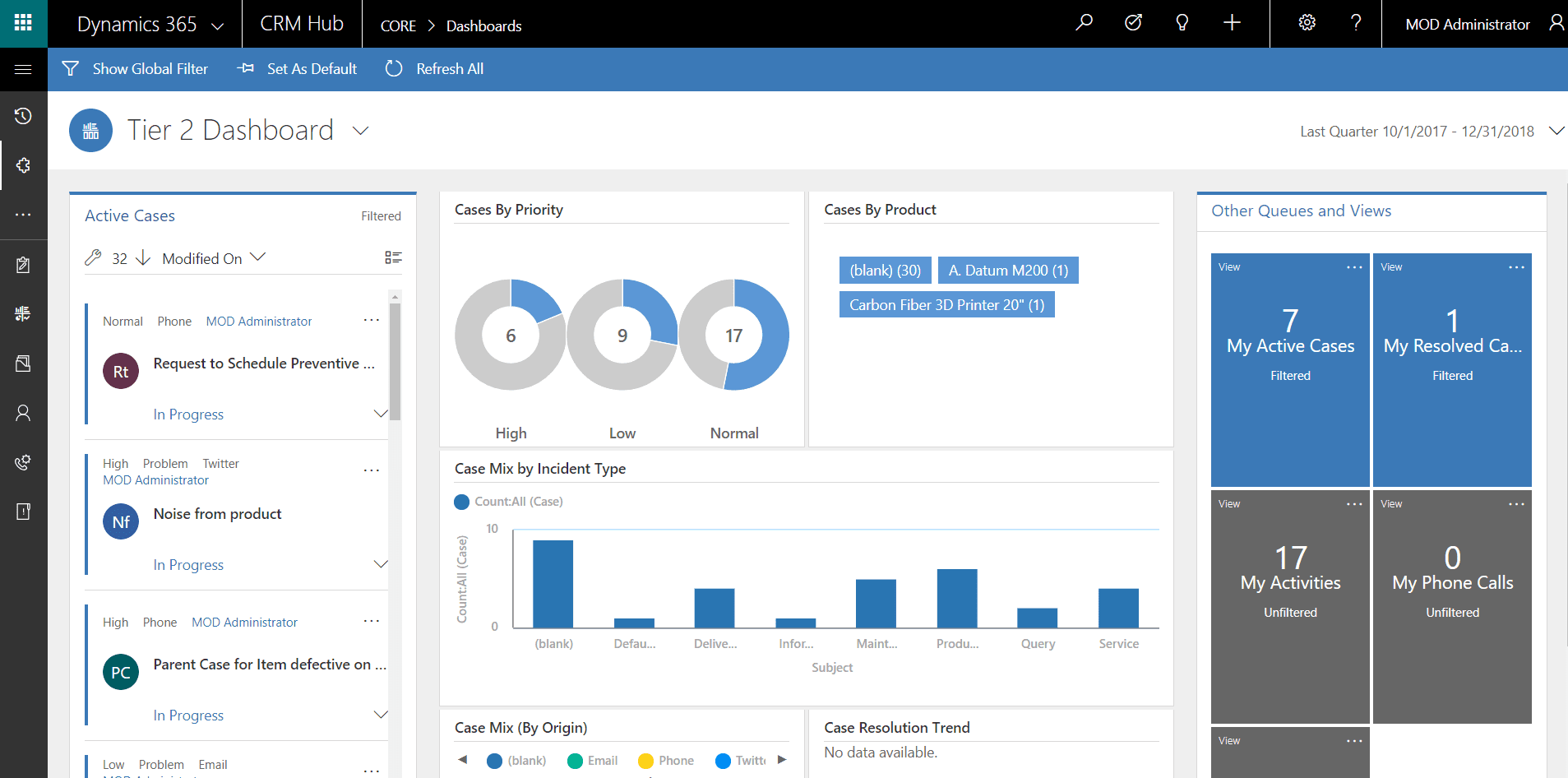
SAP S/4 HANA
SAP S/4HANA is a comprehensive ERP (Enterprise Resource Planning) system that offers a wide range of features and functionalities that can be used by distributors to streamline their operations and improve their business processes. Here are some of the ways that SAP S/4HANA can be used as an ERP for distributors:
-
Inventory Management: SAP S/4HANA provides a robust inventory management system that allows distributors to monitor their inventory levels in real-time, track inventory movements, and optimize inventory levels to ensure that they have the right products in stock at the right time.
-
Procurement: With SAP S/4HANA, distributors can streamline their procurement process, automate purchase order creation and approval, and manage their supplier relationships more effectively.
-
Sales Order Management: SAP S/4HANA offers comprehensive sales order management capabilities that enable distributors to manage their sales orders efficiently, track the status of orders, and provide accurate and timely delivery to customers.
-
Financial Management: SAP S/4HANA provides a comprehensive financial management system that enables distributors to manage their financial transactions, monitor their cash flow, and generate financial reports that provide insight into their business performance.
-
Customer Relationship Management: With SAP S/4HANA, distributors can manage their customer relationships more effectively, track customer interactions, and provide a personalized customer experience.
-
Analytics: SAP S/4HANA provides advanced analytics capabilities that enable distributors to gain insights into their business performance, identify trends, and make data-driven decisions to optimize their operations.
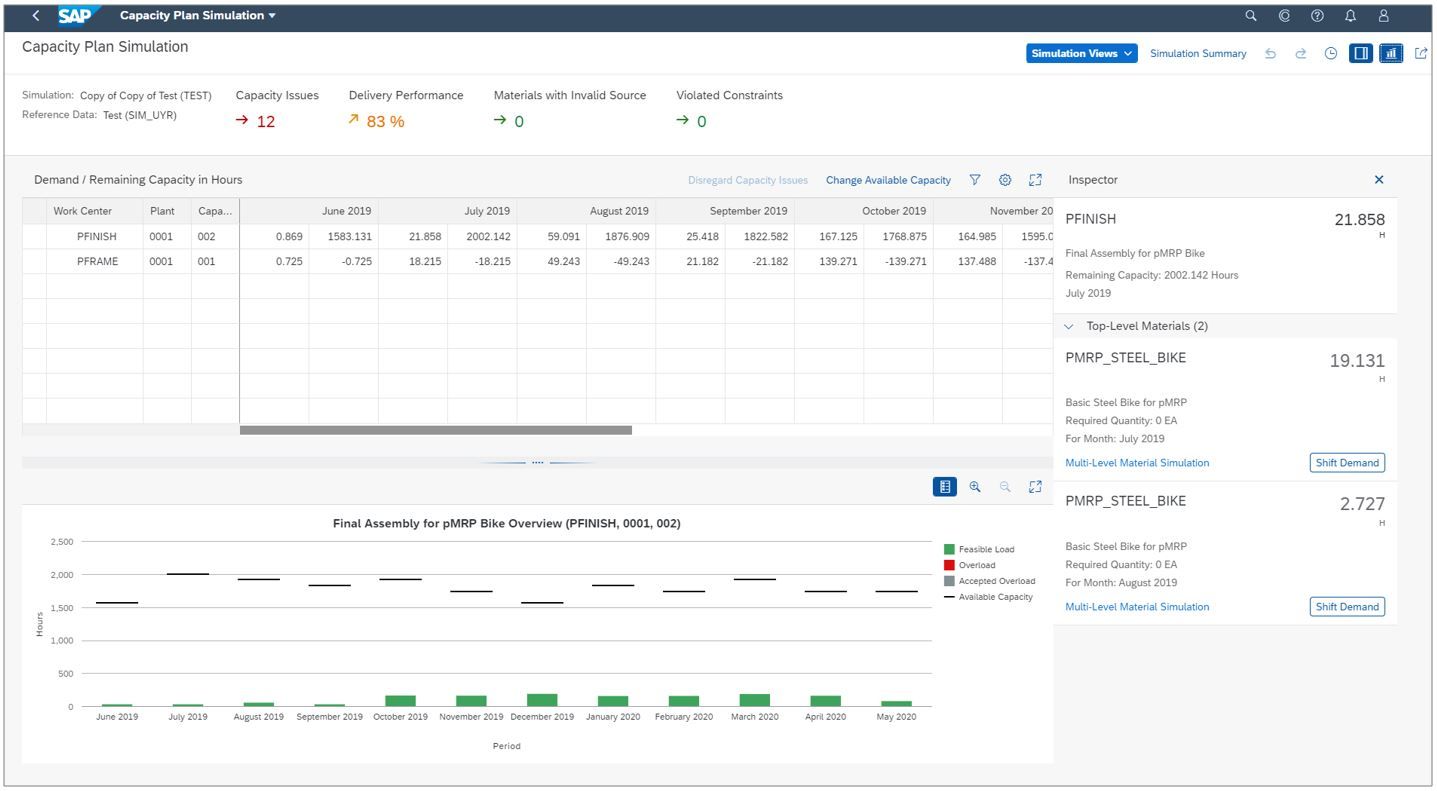
| Feature/Consideration | SAP S/4 HANA | Rootstock Cloud ERP | Infor Syteline | NetSuite | Acumatica | SAP Business One | Microsoft Dynamics 365 | Business Central | SYSPRO |
|---|---|---|---|---|---|---|---|---|---|
| Deployment | On-Premise, Cloud | Cloud-based | On-Premise, Cloud | Cloud-based | Cloud-based, On-Premise | On-Premise, Cloud | Cloud-based, On-Premise | Cloud-based, On-Premise | On-Premise, Cloud |
| Pricing Model | Subscription, License | Subscription | Subscription, License | Subscription | Subscription, License | Subscription, License | Subscription | Subscription | Subscription, License |
| Industry Focus | Multiple Industries | Manufacturing, Distribution | Manufacturing, Services | Multiple Industries | Multiple Industries | Small to Midsize Businesses | Multiple Industries | Small to Midsize Businesses | Manufacturing, Distribution |
| Inventory Management | Advanced | Advanced | Advanced | Advanced | Advanced | Moderate | Advanced | Moderate | Advanced |
| Order Management | Advanced | Advanced | Advanced | Advanced | Advanced | Moderate | Advanced | Moderate | Advanced |
| Supply Chain Management | Advanced | Advanced | Advanced | Advanced | Advanced | Moderate | Advanced | Moderate | Advanced |
| Financial Management | Advanced | Advanced | Advanced | Advanced | Advanced | Moderate | Advanced | Moderate | Advanced |
| Customer Relationship Management (CRM) | Available | Available | Available | Built-in | Built-in | Available | Built-in | Available | Available |
| Business Intelligence | Advanced | Moderate | Advanced | Advanced | Advanced | Moderate | Advanced | Moderate | Advanced |
| Customization | High | Moderate | High | High | High | Moderate | High | Moderate | High |
| Ease of Use | Moderate | Moderate | Moderate | High | Moderate | High | Moderate | High | Moderate |
| Scalability | High | Moderate | High | High | High | Moderate | High | Moderate | High |
| Integration Capabilities | High | Moderate | High | High | High | Moderate | High | Moderate | High |
| Support & Training | Comprehensive | Comprehensive | Comprehensive | Comprehensive | Comprehensive | Comprehensive | Comprehensive | Comprehensive | Comprehensive |
| User Reviews | Generally Positive | Generally Positive | Generally Positive | Generally Positive | Generally Positive | Generally Positive | Generally Positive | Generally Positive | Generally Positive |
ERP Modules & Functionality for Wholesale & Distribution
ERP systems for wholesale & distribution should allow you to reap many benefits, including unification of your front and back office processes:
Accounting and Financials
ERP systems for distribution provide rock solid accounting & financials modules that seamlessly integrate with other lines of business such as sales and distribution.
Purchasing
Monitor your spend and control it to keep profits in check with integrated purchasing and procurement within your enterprise resource planning solution.
Inventory Management
Monitor stock and inventory across multiple locations and perform real time valuations in distribution ERP software built for wholesalers.
Reporting and dashboards
Get one view of your distribution operation with inbuilt reporting and dashboards for your ERP solution.
Quality Management
Ensure high quality to your customers and theirs with integrated quality management capabilities within your ERP solution for distribution.
Asset Management
Manage assets across your business and sites with distribution ERP solutions built to integrate fixed assets with other lines of business.
Warehouse Management
Manage multiple large scale warehouses within your ERP solution to ensure optimum efficiency across your distribution enterprise.
Expenses Management
Automate expenses requisitions and approvals for your sales team or R&D team within your ERP system.
Customer service
Review your customer service history and provide better cross-selling, up-selling and post-sale customer support to help deliver products more accurately.
Sales management
Track & plan sales pipeline, score leads, prospects and forecast opportunities in real-time across territories, accounts and teams.
Customisation
Flexible ERP software that's built on an open and extensible foundation, allowing you to choose the features that suit your business needs.
Mobility
Access your ERP data at any time so you're more available to customers and take advantage of unexpected opportunities as they surface.
Updates and maintenance
Backed by the consistency of market-leading vendors, ERP software regularly updates to ensure an optimal user experience.
Versatile deployments
Connects customers, partners, and employees through real-time digital relationships to improve the way you do business.
Supply Chain Management ERP
In this article, we'll discuss the benefits of supply chain management systems within organizations and how your organization can use a supply chain management ERP to streamline the transfer of goods around the world.
ERP Requirements Gathering (RFI, RFP) Template Excel
Start your ERP evaluation process with our RFI & RFP Excel template for the engineering industry.
ERP Project Budget Calculator Template
Calculate the costs of your ERP project with our prebuilt budget calculator.
Frequently Asked Distribution ERP Questions
What does wholesale & distribution ERP do?
Wholesale and distribution ERP software enables companies in the wholesale industry to run more integrated business operations across their different departments. Often wholesale companies run their businesses on different systems and applications.
Inventory management might operate on spreadsheets or siloed applications, finance and accounting may be conducted on a standalone accounting software package, sales order and quotations are often compiled on a separate CRM. This can cause data integration issues which then leads onto real business impacts including late orders, decreased efficiency, a lack of business intelligence and ultimately poor profits and unhappy customers.
ERP software for wholesale & distribution solves this probably by simply making everyone run from the same system of record. Sales orders, inventory, finance, supply chain and procurement can all operate in one unified business system, allowing for seamless interaction between the different departments of your wholesale or distribution organization.
How much does wholesale & distribution ERP cost?
ERP for wholesale & distribution can vary in cost from $20,000 to several millions in Year 1. The cost of wholesale ERP software will largely vary dependant on the size of your business, the ERP solution you choose to implement, the scope of your implementation, as well as your ERP implementation partner and their resourcing model.
How do I implement distribution ERP?
Implementing a Distribution ERP (Enterprise Resource Planning) system is a complex process that requires careful planning, coordination, and execution. Below is a step-by-step guide to help you through the implementation process:
Planning Phase
-
Project Kickoff
- Assemble a project team consisting of key stakeholders, IT professionals, and possibly external consultants.
- Define the scope, objectives, and timeline for the ERP implementation.
-
Requirement Analysis
- Document the specific needs and requirements of your distribution business.
- Prioritize features and functionalities.
-
Budget Allocation
- Determine the budget for the ERP implementation, including software, hardware, consulting fees, and training costs.
-
Vendor Selection
- Choose an ERP vendor based on your requirements, budget, and their reputation.
- Finalize the contract and terms of service.
Design and Development Phase
-
System Architecture
- Decide whether the ERP system will be cloud-based or on-premise.
- Plan the system architecture and how it will integrate with existing systems.
-
Customization and Configuration
- Customize the ERP software to meet your specific needs.
- Configure settings, workflows, and user roles.
-
Data Migration
- Prepare your existing data for migration into the new system.
- Perform data cleansing, mapping, and importing.
Testing Phase
-
Unit Testing
- Test individual modules and functionalities to ensure they meet requirements.
-
Integration Testing
- Test the interoperability of the ERP system with other existing systems.
-
User Acceptance Testing (UAT)
- Involve end-users to test the system in a real-world scenario.
- Collect feedback and make necessary adjustments.
Deployment Phase
-
Training
- Train the staff on how to use the new ERP system effectively.
- Provide documentation and resources for reference.
-
Go-Live
- Once testing is complete and the system is stable, go live.
- Monitor the system closely for any issues.
-
Parallel Run (Optional)
- Run the new ERP system alongside the old system for a limited period to ensure data accuracy and process integrity.
Post-Implementation Phase
-
Performance Monitoring
- Continuously monitor the system’s performance and resolve any issues that arise.
-
User Support
- Provide ongoing support and training for users.
- Set up a helpdesk or ticketing system for issue resolution.
-
Updates and Maintenance
- Keep the system updated with the latest patches and versions.
- Perform regular maintenance checks.
-
Review and Feedback
- Conduct periodic reviews to assess the ROI and overall effectiveness of the ERP system.
- Collect feedback from users for future improvements.
-
Scalability
- Plan for scaling the ERP system as your business grows.
What is the best ERP software for distribution?
The best ERP software for distribution includes:
- SAP Business One
- Infor CloudSuite Industrial
- Oracle NetSuite
- Epicor
- Oracle ERP Cloud
- Acumatica
- Syspro
- Microsoft Dynamics 365
- SAP S/4 HANA
- QAD Systems
Can an ERP system help in improving customer service?
Yes. With integrated CRM functionalities, an ERP system can help distributors to better understand their customers, track interactions, manage customer inquiries, process orders faster, and thus, provide an improved customer experience.
Can an ERP system handle my inventory management needs?
One of the core features of an ERP system for distributors is advanced inventory management. It can track inventory levels, optimize stock quantities, manage warehouses in multiple locations, handle reordering processes, and even predict future demand patterns using intelligent forecasting models.
Do I need to have a seperate ERP and WMS system?
The decision to have separate Enterprise Resource Planning (ERP) and Warehouse Management System (WMS) systems depends on various factors such as the size of your organization, the complexity of your operations, and your specific business needs. Here are some points to consider:
Advantages of Separate Systems:
-
Specialization: WMS systems are specialized for warehouse operations, including inventory tracking, picking, and shipping. ERP systems, on the other hand, are more generalized and cover a broader range of business functions like accounting, human resources, and customer relationship management.
-
Flexibility: Separate systems allow you to choose the best-of-breed solutions for each function, rather than being confined to the limitations of a single system.
-
Scalability: As your business grows, you may find that you need more advanced features in one area but not in others. Separate systems make it easier to upgrade or change one system without affecting the other.
-
Performance: Dedicated systems are optimized for their specific tasks, which can result in better performance and efficiency.
Disadvantages of Separate Systems:
-
Integration Challenges: Data needs to be synchronized between the two systems, which can be complex and costly.
-
Cost: Purchasing, implementing, and maintaining two separate systems can be more expensive than a single, integrated solution.
-
User Training: Employees may need to learn and adapt to multiple systems, which can take time and reduce efficiency initially.
-
Data Consistency: With two systems, there's a risk of data discrepancies if not properly integrated.
Advantages of Integrated Systems:
-
Unified Data: All data is stored in a single database, making it easier to generate comprehensive reports and analytics.
-
Cost-Efficiency: Generally, it's less expensive to implement and maintain a single system.
-
Simplified User Experience: Employees only need to learn one system, which can improve efficiency.
-
Streamlined Processes: Integrated systems often allow for more streamlined operations and easier automation of tasks across departments.
Disadvantages of Integrated Systems:
-
Limited Features: An integrated system may not have all the specialized features that a dedicated WMS or ERP system would offer.
-
Complexity: Because they cover so many aspects of a business, integrated systems can be complex and cumbersome to implement and manage.
-
Vendor Lock-in: You're often tied to a single vendor for all your business software needs, which can be limiting.
How do you buy distribution ERP?
Buying a Distribution ERP (Enterprise Resource Planning) system is a significant investment that requires careful planning, research, and execution. Here's a step-by-step guide to help you through the process:
Preliminary Steps:
-
Identify Needs: List down the specific requirements you have for a Distribution ERP system. This could include inventory management, order processing, shipping, customer relationship management, etc.
-
Budget Planning: Determine the budget you are willing to allocate for the ERP system. Keep in mind that costs can include software licenses, hardware, implementation, training, and ongoing maintenance.
-
Stakeholder Involvement: Involve key stakeholders from different departments like sales, warehouse management, and finance to understand their needs and challenges.
Research:
-
Vendor Research: Look for reputable ERP vendors who specialize in distribution or have modules tailored for distribution businesses.
-
Request for Proposal (RFP): Create an RFP document outlining your requirements and send it to shortlisted vendors. This will help you get customized solutions and pricing.
-
Demo and Trials: Schedule demos with the vendors to see the ERP system in action. Some vendors may offer a free trial.
Evaluation:
-
Compare Features: Evaluate the features of each system against your requirements.
-
Check References: Speak to current or past clients of the vendor to gauge their satisfaction and the system's performance.
-
Cost Analysis: Look at the total cost of ownership, including hidden costs like customization, upgrades, and additional modules.
Purchase and Implementation:
-
Negotiation: Once you've selected a vendor, negotiate the terms, pricing, and any customizations.
-
Contract Review: Carefully review the contract and ensure it includes all the agreed terms, support, and maintenance details.
-
Implementation: Plan the implementation process, which may include data migration, customization, and integration with other systems.
-
Training: Train your staff on how to use the new ERP system effectively.
-
Go-Live: Once everything is set up and tested, you can go live with the system.
-
Ongoing Support and Maintenance: Ensure you have a support and maintenance agreement in place for ongoing needs.
Additional Tips:
-
Consult Experts: It may be beneficial to hire an ERP consultant to guide you through the selection and implementation process.
-
Scalability: Make sure the system you choose is scalable to accommodate future growth.
-
Data Backup: Ensure that the system has robust data backup and recovery features.
-
Compliance: Make sure the ERP system complies with industry standards and regulations.
By following these steps and considering the various factors involved, you can make a more informed decision when buying a Distribution ERP system.
How do you evaluate distribution ERP?
Evaluating a Distribution ERP (Enterprise Resource Planning) system is a critical step in ensuring that the software meets the specific needs of your distribution business. Here's a comprehensive guide on how to evaluate a Distribution ERP system:
Define Objectives and Requirements
-
List Business Objectives: Clearly define what you aim to achieve with the ERP system, such as improved efficiency, real-time tracking, or better customer service.
-
Gather Requirements: Involve stakeholders from various departments like sales, inventory management, and finance to compile a list of features and functionalities needed.
Preliminary Research
-
Market Research: Research potential ERP vendors who specialize in distribution or offer modules tailored for distribution businesses.
-
Request for Information (RFI): Send out an RFI to shortlisted vendors to gather preliminary information about their offerings.
Request for Proposal (RFP)
-
Create an RFP: Develop a detailed Request for Proposal outlining your specific requirements, budget, and timelines.
-
Send RFPs: Send the RFPs to the shortlisted vendors and request customized proposals.
Vendor Demos and Trials
-
Schedule Demos: Arrange for live demonstrations with each vendor to see the ERP system in action.
-
Trial Period: If possible, opt for a trial period to test the system's capabilities and how well it integrates with your existing processes.
Evaluation Criteria
-
Feature Comparison: Create a matrix to compare the features of each system against your requirements.
-
User Experience: Evaluate the system's user interface, ease of use, and the learning curve for your team.
-
Scalability: Assess whether the ERP system can scale with your business growth.
-
Integration: Check how well the ERP system can integrate with your existing systems and third-party applications.
-
Customization: Determine the extent to which the system can be customized to meet your specific needs.
-
Compliance and Security: Ensure the system complies with industry regulations and has robust security measures in place.
-
Total Cost of Ownership (TCO): Consider all costs, including licensing, implementation, training, maintenance, and upgrades.
-
Vendor Reputation: Research customer reviews, ask for client references, and possibly visit companies where the ERP system is already implemented.
Decision Making
-
Scorecard Method: Use a weighted scorecard to rate each ERP system based on the evaluation criteria.
-
Consult Stakeholders: Share the evaluation results with key stakeholders for their input before making a final decision.
-
Negotiation: Once a vendor is selected, negotiate contract terms, pricing, and any customizations.
-
Contract Review: Thoroughly review the contract to ensure it includes all agreed-upon terms, including support and maintenance.
By systematically evaluating each ERP system based on these criteria, you'll be better equipped to select a solution that aligns with your business objectives and operational needs.
What are the features of Distribution ERP?
- Distribution ERP (Enterprise Resource Planning) systems can be quite comprehensive, offering a wide range of features to manage various aspects of a distribution business. However, the exact features can vary depending on the vendor and the specific needs of the business. Here's a list of features commonly found in Distribution ERP systems:
- Core Features
-
Inventory Management
- Stock tracking
- Reorder levels
- Multi-location support
-
Order Management
- Order entry
- Order tracking
- Backorder management
-
Warehouse Management
- Picking and packing
- Bin and location tracking
- Shipping integration
-
Purchasing
- Purchase orders
- Supplier management
- Procurement analytics
-
Sales Management
- Customer relationship management (CRM)
- Quotation management
- Sales analytics
-
Financial Management
- General ledger
- Accounts payable/receivable
- Budgeting and forecasting
-
Reporting and Analytics
- Customizable reports
- Dashboards
- Data visualization
- Advanced Features
-
Demand Planning
- Forecasting
- Seasonal demand analysis
-
Transportation Management
- Route planning
- Freight management
-
Quality Control
- Inspection management
- Compliance tracking
-
Human Resources
- Employee management
- Payroll
- Time tracking
-
E-commerce Integration
- Online order processing
- Customer portal
-
Multi-Currency and Multi-Language Support
- Currency conversion
- Language localization
-
Document Management
- Document storage
- Workflow automation
-
Customer Service
- Ticketing system
- Customer feedback
-
Production Management
- Bill of materials (BOM)
- Work order management
-
Barcode Scanning
- Inventory scanning
- Order verification
-
EDI (Electronic Data Interchange)
- Automated data exchange
- Standardized communication
-
IoT Integration
- Sensor-based tracking
- Real-time analytics
-
Mobile Access
- Mobile apps
- Remote access
-
Cloud-Based or On-Premise Deployment
- Data storage options
- Scalability
-
Security Features
- User permissions
- Data encryption
-
Audit Trails
- Change logs
- Compliance reporting
-
APIs for Custom Integration
- Third-party integrations
- Custom development
-
Disaster Recovery
- Data backup
- Failover support
- This list is not exhaustive, and some ERP systems may offer additional specialized features based on industry-specific needs.
Find & Compare ERP Software for the Distribution Industry
Use our free tool to find and compare the market leading ERP software and solutions for wholesale & distribution. See how ERP system solutions including Netsuite, Epicor, Infor & SAP stack up against the competition.












